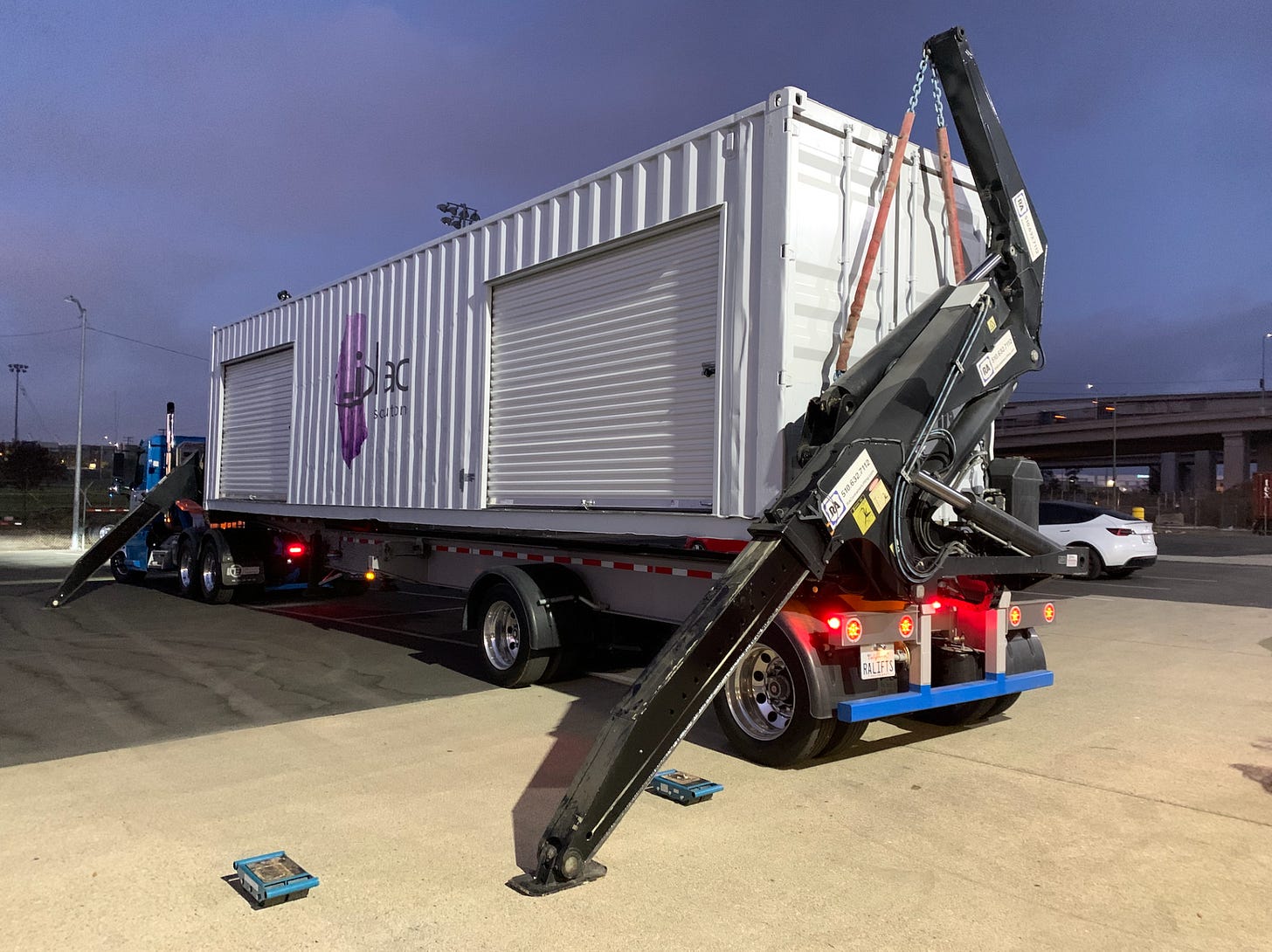Our Investment in Lilac Solutions
Sustainably scaling lithium supply for the electric vehicle era
Over a decade since the first Tesla rolled off the production line and onto the road, electric vehicles (EVs) have become a focal point for manufacturers throughout the automotive industry. While EVs only account for approximately 3% of the global car sales market, they are expected to proliferate over the next decade and have been touted by many as a key component for reducing fossil fuel emissions. A number of major car brands have signaled the belief that the EV future is inevitable, going so far in some cases as publicly declaring a commitment to phase out the production of models with internal combustion engines. The future of EVs depends on an ample and scalable supply of rechargeable batteries which hinges on access to lithium, a key ingredient for the vehicle’s energy storage.
Amid the growth in EV production and adoption, lithium availability — and as a result battery supply — has recently become a major bottleneck. The reasons for this shortage are multifold. Lithium primarily comes from two sources: a salty brine pumped from the ground and spodumene, a mineral found in hard rocks. Although deposits can be found throughout the world, refining lithium has traditionally required large amounts of equipment and complex chemical processes that require large amounts of energy, chemicals, and water. It often takes 5-10 years for a new lithium-mining operation to be able to produce battery grade materials. Caught flat footed and confronting prohibitive costs related to extraction and processing, the U.S. lags in lithium production, accounting for just 1% of global output.


Dubbed by some as “the new gasoline,” lithium’s critical role in the future of both EVs and the renewable energy industry has led it to being characterized as the “21st-century version of oil security.”
Addressing the supply, environmental, and cost challenges related to lithium, Lilac Solutions, based in Oakland, CA, is scaling an innovative solution to lithium extraction that’s sustainable and cost-effective. Excited by the team and the vital role its technology plays in enabling an all-electric future, we’re elated to announce our investment in Lilac as it pioneers a new means of increasing lithium supply.
What is Lilac?
Lilac is a lithium extraction technology company that enables the rapid development of brine projects in a scalable and sustainable manner. The company achieves this through its proprietary ion exchange technology, which delivers 10,000x faster processing, a 1,000x smaller footprint, and 2 - 3x higher lithium recovery over incumbent processes. Conventional methods for extracting lithium from brines, natural salt water deposits, require large evaporation ponds that are environmentally damaging, slow to start up, and vulnerable to weather. Furthermore, existing techniques suffer from low lithium recovery and purity and are incompatible with new brine discoveries with lower grades of lithium.
Lilac’s patented technology avoids the need for evaporation ponds by deploying ion exchange beads to brine projects worldwide. The beads are loaded into tanks and, as brine is flowed through the tanks, it percolates through the beads, which absorb lithium out of the brine. Once the beads are saturated with lithium, hydrochloric acid is used to flush out the lithium, yielding lithium chloride. Lithium chloride is the “crude oil” of lithium – the standard intermediary in every lithium brine project today. The lithium chloride is then processed on-site with conventional process equipment to yield a finished product. The product – lithium carbonate or lithium hydroxide – is sold to battery makers.

Lilac’s solution offers several compelling advantages: it protects the environment; accelerates project development; and increases recovery and purity of lithium. As a business, Lilac makes money from the sale of lithium it produces. To this end, it’s pursuing a three-pronged strategy that involves acquiring and developing low-cost high-compatibility brine projects, partnering with established developers, and providing technology services to state-owned projects.
Why Did We Invest?
Compelling Founder-Market Fit
David Snydacker, Lilac’s Founder & CEO, has a background steeped in lithium extraction and materials engineering. He holds a PhD in materials science and engineering from Northwestern University, where he worked with the U.S. Department of Energy and Ford Motor Company on advanced lithium-ion batteries. Prior to founding Lilac in 2016, he served as a battery consultant. Having gone from small lab bench demonstrations to large commercial-scale deployments, David has demonstrated a methodical yet ambitious approach to commercializing Lilac’s technology. As a result, he’s been able to continue to build his team and assemble a top notch board of advisors who hail from Breakthrough Energy Ventures, MIT’s The Engine, and Prime Impact Fund.
A Clear Climate Impact Proposition
Lithium is the linchpin to both the EV future as well as the development of renewable energy infrastructure. Lilac unlocks large new supplies of lithium from abundant but currently uneconomic brine resources. At scale, Lilac offers the proposition of 10x expansion of global reserves to meet automakers’ — and that of other industries reliant on electric batteries — goals.
Lilac envisions becoming the world’s largest lithium producer by 2030. With so many key industries and climate technologies depending on expanded lithium supplies, we view Lilac’s mission as being vital to the world realizing a clean energy future. We look forward to doing all we can to ensure the team’s success.
Additional Resources
If you are an accredited investor, and want to learn more about being an investor in our fund (to back more great companies like this one!), reach out here.





